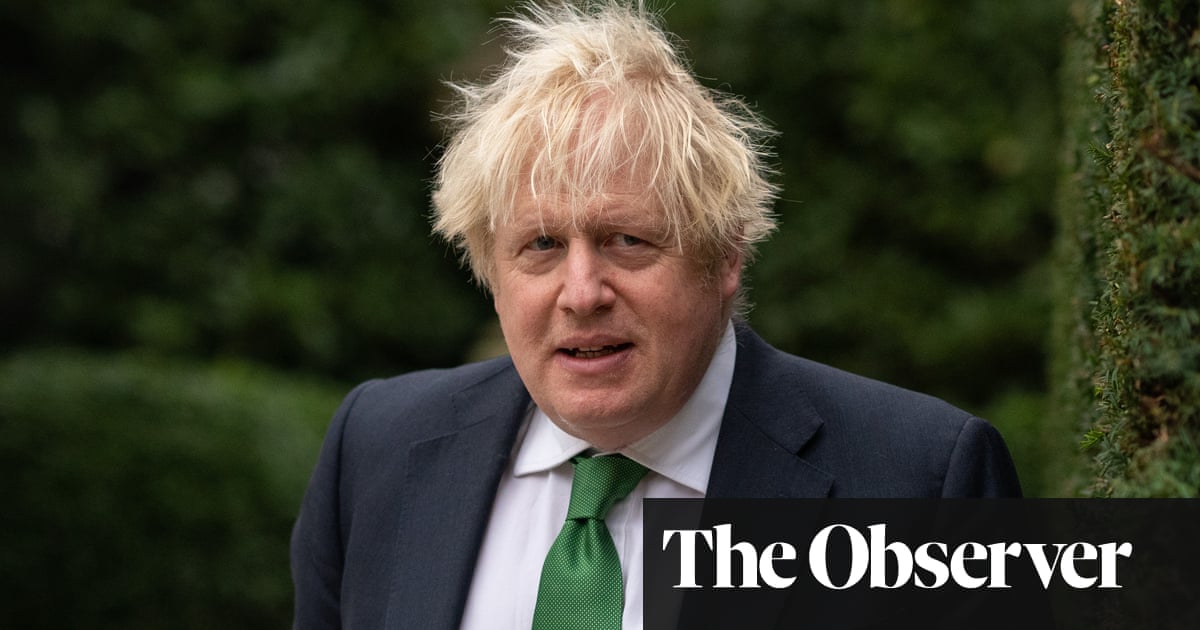
Business lobby groups have warned that the prime minister’s U-turn on encouraging office workers back to their desks is “extraordinarily reactive and extraordinarily disruptive” and risks “derailing an already fragile recovery”.
Unions said Johnson should “get a grip” of his advice on the safety of workplaces after the prime minister on Tuesday told office workers in England that they must work from home “if possible”.
The new work-from-home advice comes just three weeks after the government urged companies to bring millions of white-collar workers back to their desks, in part to help revive city centre economies.
Within hours of Johnson announcing the new restrictions, Barclays bank announced that about 1,000 of its staff, who returned to the office in recent weeks following the government’s previous drive to “get Britain back to the office” would now revert to home working. Several other large companies are expected to follow.
Adam Marshall, the director general of the British Chambers of Commerce (BCC), said of the latest shift in guidance: “Businesses understand that further restrictions are necessary to tackle the rising number of coronavirus cases, but these measures will impact business and consumer confidence at a delicate time for the economy,” Marshall said.
“Businesses, their employees and customers need to see a clear road map for the existing restrictions and those that may be introduced in the future. This must include transparent trigger points, and clarity about the support available to protect jobs and livelihoods.”
Dame Carolyn Fairbairn, the director general of the CBI, said the new measures would be a “crushing blow” for many businesses. She said the U-turn on working from home would “keep our town and city centres under great economic pressure, just as people were starting to make their way back”.
She added: “Businesses have bent over backwards to make their workplaces Covid-secure and are ready to welcome staff back as soon as allowed.”
Roger Barker, the director of policy at employers lobby group the Institute of Directors (IoD), said the new restrictions on office work and a curfew on pubs and restaurants would “inevitably put the brakes on the economic recovery”.
“The spread of the virus isn’t wholly predictable, but the back and forth on offices will cause frustration,” Barker said. “With the return of more restrictions, the onus is squarely on the government to set out the next phase of its support.”
Johnson said he was “sorry [the new restrictions] will hurt many businesses just getting back on their feet”, but warned that “significantly greater restrictions” could be imposed if people did not comply. He said the restrictions could be in place for six months.
“We will only be able to avoid it if our new measures work and our behaviour changes,” he said.
Frances O’Grady, the general secretary of the TUC, said: “With infections rising, the government must get a grip on test and trace and safety at work. Workers are still telling us that employers are not enforcing social distancing or providing PPE to keep them safe. It’s clear that this pandemic will not be over by Christmas – so neither should state support for jobs. The PM says he will put his arms around the workforce. Let’s see him prove it.”
Mike Cherry, the national chairman of the Federation of Small Businesses (FSB), said: “We’ve already suffered from six months of disruption linked to this virus, and small businesses and the self-employed will be dismayed at facing another six months of restrictions.”
The Bank of England governor, Andrew Bailey, warned that the “very unfortunate” escalation of Covid-19 cases threatened the economic outlook and said the central bank was looking hard at how it could support the economy further.
Jasmine Whitbread, the chief executive of London First, which represents businesses in the capital, said: “While public health must be the priority, discouraging people from returning to Covid-secure workplaces risks derailing an already fragile recovery.”
Mixed messages
17 July Boris Johnson laid out a plan for a substantial “return to normality”. He said the aim was to reopen society and he was giving employers the discretion to ask workers to return to their offices from 1 August. To help with the return to work the prime minister also ended the government’s advice not to use public transport.
28 August The Daily Telegraph ran a front page story with the headline: “Go back to work or risk losing your job.” The newspaper, for which Johnson wrote a weekly column until he became prime minister, said Downing Street was launching a “media blitz” of adverts to “get Britain back to the office”.
28 August Grant Shapps, the transport secretary, said: “We’re saying to people it is now safe to return to work [...] it is now safe to start returning, that’s what we’re encouraging people to do, because although you can do an awful lot of things via video, Zoom and all the rest of it, there are limitations to that and there will be times when that’s not appropriate.” Following sharp criticism from all sides the “Back to the office” advertising campaign did not materialise.
1 September Johnson told the cabinet: “People are going back to the office in huge numbers across our country and quite right too.”
22 September The latest change in advice was confirmed before breakfast time by the cabinet secretary, Michael Gove. He told Sky News that people who could work from home would now once again be encouraged to do so. He called the advice a “shift in emphasis”, rather than a U-turn.












